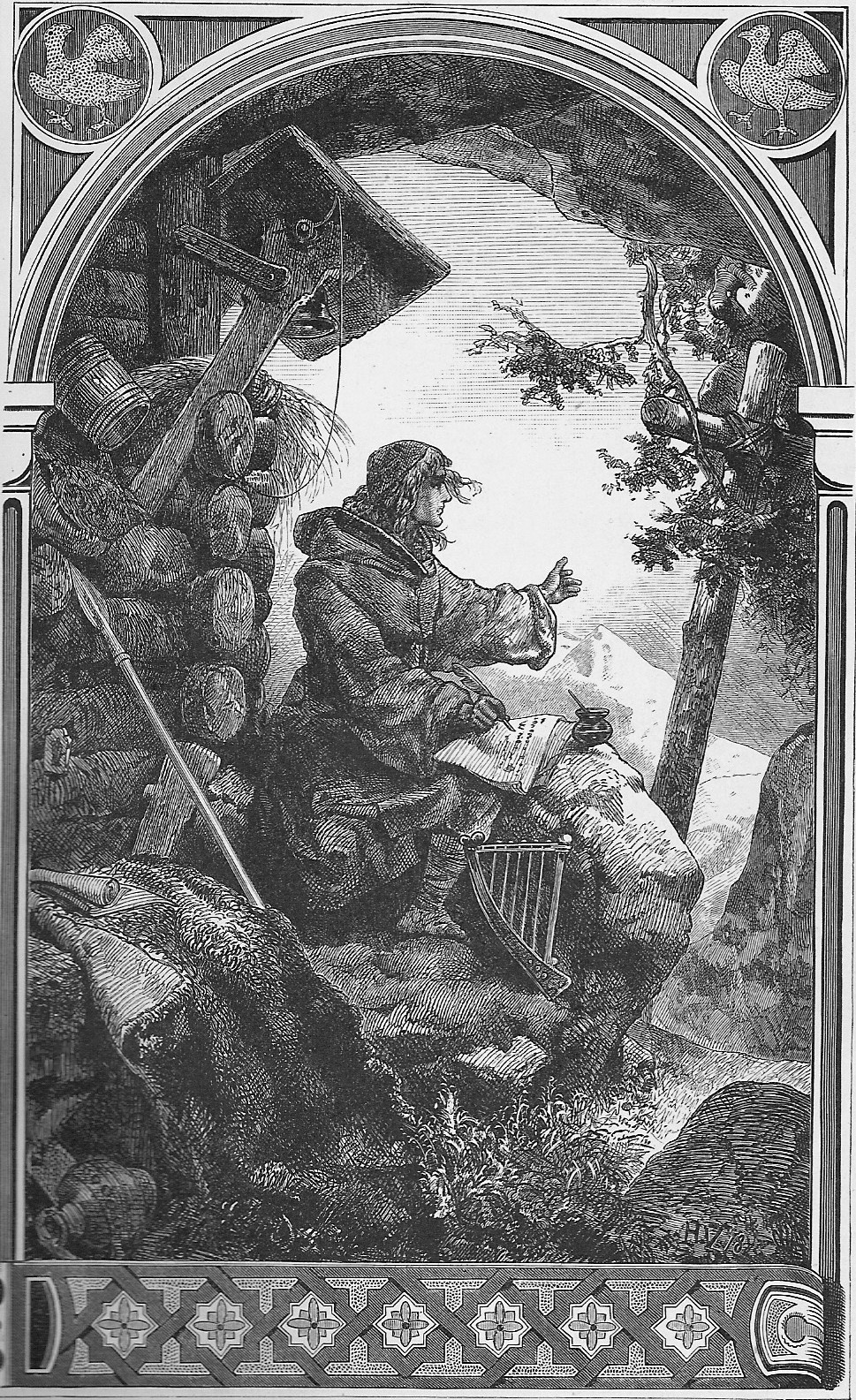|
Ekkehard III
Ekkehard III was a monk of the Abbey of Saint Gall and a nephew of Ekkehard I Ekkehard I ( la, Eccehardus; died 14 January 973), called ''Major'' or ''Senex'' (the Elder), was a monk of the Abbey of Saint Gall. He was of noble birth, of the Jonschwyl family in Toggenburg, and was educated in the monastery of St. Gall; afte ... and a cousin of Ekkehard II. He shared the educational advantages of his cousin and, at his invitation, accompanied him to Hohentwiel to superintend and direct the studies of the local clergy. On his return to St. Gall he was made dean of the abbey, and is reported to have filled this office for thirty years. He died early in the eleventh century. Sources *{{CathEncy, url=http://www.newadvent.org/cathen/05370a.htm, title=Ekkehard Monks at Saint Gall ... [...More Info...] [...Related Items...] OR: [Wikipedia] [Google] [Baidu] |
Abbey Of Saint Gall
The Abbey of Saint Gall (german: Abtei St. Gallen) is a dissolved abbey (747–1805) in a Catholic religious complex in the city of St. Gallen in Switzerland. The Carolingian-era monastery existed from 719, founded by Saint Othmar on the spot where Gallus had erected his hermitage. It became an independent principality between 9th and 13th centuries, and was for many centuries one of the chief Benedictine abbeys in Europe. The library of the Abbey is one of the oldest monastic libraries in the world. The city of St. Gallen originated as an adjoining settlement of the abbey. The abbey was secularized around 1800, and in 1848 its former church became a Cathedral. Since 1983 the abbey precinct has been a UNESCO World Heritage Site. History Foundation Around 612 Gallus, according to tradition an Irish monk and disciple and companion of Saint Columbanus, established a hermitage on the site that would become the monastery. He lived in his cell until his death in 646, and wa ... [...More Info...] [...Related Items...] OR: [Wikipedia] [Google] [Baidu] |
Ekkehard I
Ekkehard I ( la, Eccehardus; died 14 January 973), called ''Major'' or ''Senex'' (the Elder), was a monk of the Abbey of Saint Gall. He was of noble birth, of the Jonschwyl family in Toggenburg, and was educated in the monastery of St. Gall; after joining the Benedictine Order, he was appointed director of the inner school there. Later, under Abbot Kralo, who trusted him implicitly, he was elected dean of the monastery, and for a while directed all the affairs of the abbey. Ekkehard made a pilgrimage to Rome, where he was retained for a time by Pope John XII, who presented him with various relics of St. John the Baptist. After Kralo's death Ekkehard refused the abbatial succession, because of lameness resulting from a fractured leg. However, he directed the choice of Burkard, son of Count Ulrich of Buchhorn, who governed St. Gall with the advice and co-operation of Ekkehard. The latter erected a hospice in front of the monastery for the sick and strangers, and was in many other ... [...More Info...] [...Related Items...] OR: [Wikipedia] [Google] [Baidu] |
Ekkehard II
Ekkehard II (died 23 April 990), called ''Palatinus'' ("the Courtier"), was a monk of the Abbey of Saint Gall who became known for his sequence poetry. Life Ekkehard was probably born in the Saint Gall area; he and his cousin Ekkehard III were nephews of Ekkehard I (''Ekkehardus Decanus''; 910–973), dean at the abbey and presumed author of the ''Waltharius'' poem. Ekkehard II was educated by his uncle and the monk Geraldus, who educated also his other nephews, Notker Physicus and Burkard, later abbot of the monastery. Ekkehard II likewise became a teacher at the monastery school. A number of his pupils joined the order; others became bishops. About 973 Dowager Duchess Hadwig of Swabia, the widow of Duke Burchard III called Ekkehard II to her seat at Hohentwiel Castle. Hadwig, a member of the Imperial Ottonian dynasty, was wont occasionally to visit St. Gall, and eventually asked for and obtained the services of Ekkehard as her tutor in the reading of the Latin classics. Never ... [...More Info...] [...Related Items...] OR: [Wikipedia] [Google] [Baidu] |

